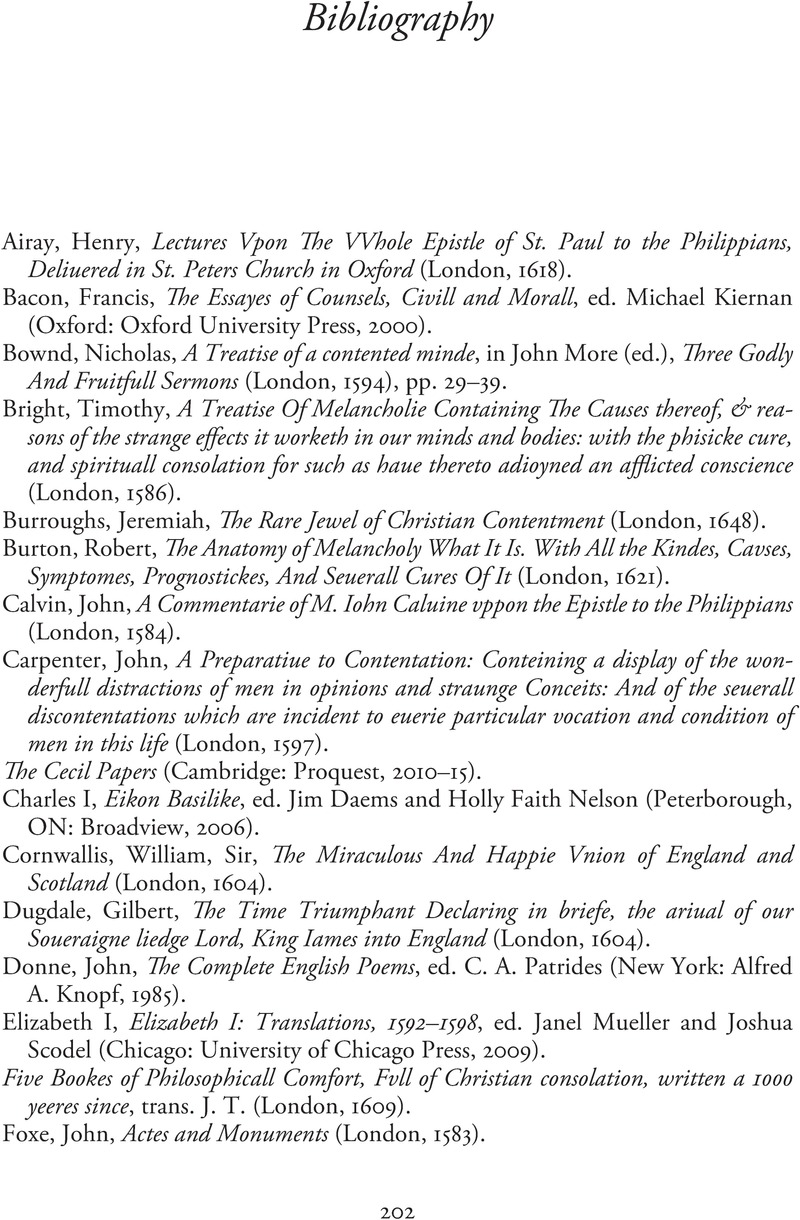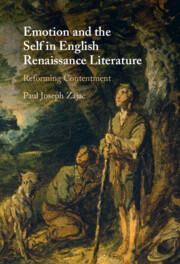Book contents
- Emotion and the Self in English Renaissance Literature
- Emotion and the Self in English Renaissance Literature
- Copyright page
- Dedication
- Contents
- Acknowledgments
- Introduction
- Chapter 1 Constructing Contentment in Reformation England
- Chapter 2 Romancing Contentment
- Chapter 3 Fashioning Contentment
- Chapter 4 Performing Contentment
- Chapter 5 Losing Contentment
- Conclusion
- Notes
- Bibliography
- Secondary Sources
- Index
- References
Bibliography
Published online by Cambridge University Press: 15 December 2022
- Emotion and the Self in English Renaissance Literature
- Emotion and the Self in English Renaissance Literature
- Copyright page
- Dedication
- Contents
- Acknowledgments
- Introduction
- Chapter 1 Constructing Contentment in Reformation England
- Chapter 2 Romancing Contentment
- Chapter 3 Fashioning Contentment
- Chapter 4 Performing Contentment
- Chapter 5 Losing Contentment
- Conclusion
- Notes
- Bibliography
- Secondary Sources
- Index
- References
Summary

- Type
- Chapter
- Information
- Emotion and the Self in English Renaissance LiteratureReforming Contentment, pp. 202 - 204Publisher: Cambridge University PressPrint publication year: 2022



